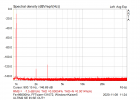OP
- Thread Starter
- #561
To make a small reference to the actual topic (I know, how dare you to post something on the actual topic), the measurements of the capacitors via tweeter represent a minimum phase system, so to speak. Therefore, the phase frequency response can be determined from the frequency response by using Hilbert transformation.As @SIY showed, that is not always the case and depends on context. If we look at the frequency domain, amplitude is complex and includes phase. In the time domain, it does not. That can be rather confusing
Measurement-wise, this is not quite so easy to show, since the two-channel measurement in Arta, corrects the possible phase errors of the measurement amplifier, but my measurement microphone is only frequency response calibrated and the audio interface (the mic preamp) may also rotate the phase a little.
This means that there is always some excess phase in the measurement system, but it must not change from measurement to measurement within the limits of measurement accuracy.
So let's compare the measured phase and the minimum phase from the measurements of the Alumen Z-Cap and the Old-Cap:
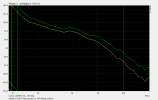
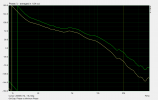
As said, phase and minimum phase is not congruent (as one would expect for a minimum phase system), since the measurement system contributes some excess phase.
So if really only the measuring system is responsible for the difference between phase and minimum phase, then the excess phase must not change during the measurements, within the limits of the measuring accuracy. Which is true, when we compare the excess phase for all three different caps measured via tweeter:
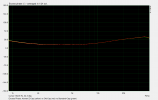
The three different capacitors therefore have no measurable effect on the time (diff) response of the tweeter.
(Except for the minimal FR difference measured - which was about -0.1dB at its best with the Old-Cap and since it is a minimum phase system, we get a tiny phase diff too)
Update 1:
Phase response of the three different capacitors in series to the tweeter 1-40kHz - no difference at all:
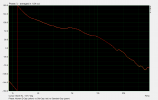
Update 2:
For all those who believe that the results would be different with real music as a signal, here is the evaluation of the phase differences between the Alumen Z-Cap versus Old-Cap and the respective "Fast Car" sample, and same for Alumen-Z-Cap versus Standard-Cap using DeltaWave to analyze the music samples:
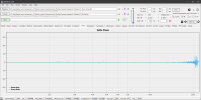
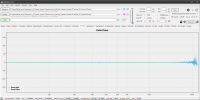
In the test range from 1kHz to 20kHz, the phase deviations are practically always below 10°, which is completely inaudible to my knowledge.
In the high frequency range, I have not even managed to hear 360° phase rotation in an ABX test, since the resulting group delay is so small.
Last edited:

